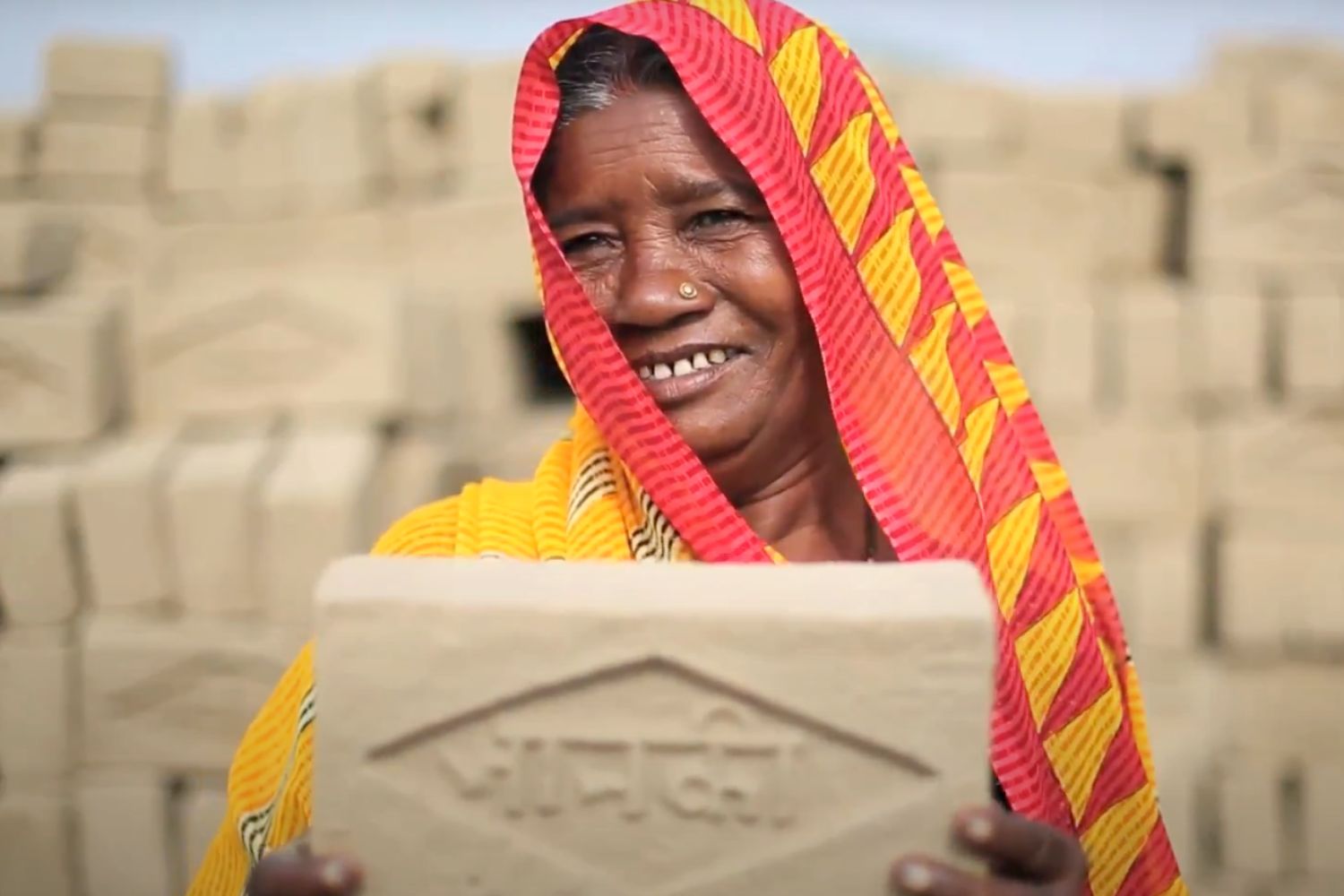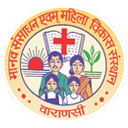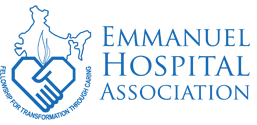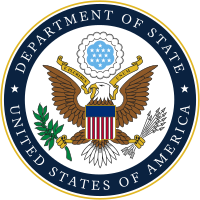India
In India, Free the Slaves is confronting the deep-rooted issue of modern slavery through a multifaceted approach. Our active projects, including the Fostering Fee Accountability and Cost Tracking (FFACT) initiative, focus on alleviating immediate vulnerabilities like debt bondage and forced labor, while pushing for systemic changes in labor practices and recruitment fees. We are strengthening the capacity of civil society and workers’ organizations, promoting transparency, and advocating for ethical labor practices in India-Qatar migration corridors. As we move forward, we plan to expand our efforts to address bonded labor and human trafficking further, while empowering local organizations and communities for sustainable resilience to slavery.
Slaves in India
India, the world’s most populous country, grapples with a grim reality – the rampant existence of modern slavery. According to the 2023 Global Slavery Index, India is home to over 11 million slaves, the highest number in any country. Slavery in India manifests in various forms, including forced labor, human trafficking, and child exploitation. Despite the significant strides the nation has made in terms of economic growth and technological advancement, slavery remains deeply entrenched in its societal and economic structures, victimizing millions of vulnerable individuals.
Bonded labour is a predominant form of slavery in India, fueled by deep-rooted socio-economic inequalities, caste-based discrimination, and abject poverty. In this exploitative system, individuals are coerced into working under deplorable conditions to repay debts, which often accrue exorbitant interest rates and extend across generations. Although India enacted the Bonded Labour System (Abolition) Act in 1976, the practice remains widespread, particularly in sectors such as agriculture, brick kilns, mining, and the garment industry. Factors contributing to the persistence of bonded labor include lax enforcement of labor laws, limited access to justice for marginalized communities, and the normalization of such exploitation within certain sectors and regions.
Year FTS started working in India
In India, Free the Slaves is working to tackle the multifaceted challenges of modern slavery. Our projects are designed to address immediate issues as well as build long-term resilience against the threats of bonded labor, trafficking, and other forms of slavery. Below, we spotlight three projects showcasing our comprehensive approach in India.
The Fostering Fee Accountability and Cost Tracking (FFACT) 2022 – 2024
Problem:
The lack of transparency related to recruitment fees for foreign employment, and lack of enforcement of existing laws and regulations has led to a myriad of issues in labor migration corridors, specifically between India-Qatar and Bangladesh-Malaysia. Lured by the promise of employment, vulnerable workers often find themselves ensnared in debt bondage due to exorbitant recruitment fees. Coupled with deceitful practices by recruitment agencies and the lack of oversight by companies and governments, many workers face a host of challenges, including forced labor, exploitation, and a lack of essential rights.
Free The Slaves Intervention:
1. Capacity Building:
-
- FTS focuses on empowering civil society and worker organizations with critical knowledge regarding recruitment fees, their documentation, and associated practices.
- Aims to enable these entities to decode, analyze, and leverage recruitment fee data, allowing them to liaise more effectively with both the private sector and government bodies.
2. Direct Engagement in Vulnerable Regions:
-
- FTS proactively addressed high-risk labor migration corridors, specifically between India-Qatar and Bangladesh-Malaysia.
- Ground-level training and practical interventions were organized, creating direct field-level learning experiences and enabling these organizations to confront real-world challenges.
3. Promotion of Constructive Dialogue:
-
- FTS actively encouraged and facilitated dialogue between civil society, worker organizations, and significant stakeholders in the corporate and public sectors.
- The goal was to forge a cohesive and united front against the unethical practice of charging recruitment fees and the vulnerabilities stemming from them.
4. Public Accessibility and Awareness:
-
- Recognizing the power of information sharing, FTS is developing a website platform to offer public access to vital resources.
- This dedicated website is anticipated to serve as a central hub for tools, best practices, and ethical approaches to counter debt bondage, fostering a more informed and vigilant society.
Anticipated Impact on the Region:
Increased Corporate Accountability
- With civil society and worker organizations now armed with a wealth of knowledge, corporations in the region are expected to face heightened scrutiny.
- This informed vigilance should result in a notable shift in labor practices, with a push for the eradication of recruitment fees and the establishment of more robust regulatory frameworks.
Reduction in Exploitative Practices
- The increased oversight and pressure from informed civil society and worker organizations are predicted to significantly decrease instances of debt bondage and associated labor exploitations.
- As a consequence, the broader labor market within these corridors should experience a shift towards more ethical and worker-friendly practices.
Transparency and Fair Reporting
- The project’s efforts should lead to a more transparent environment where recruitment fees and practices are reported accurately and ethically.
- This transparency will not only protect workers but will also ensure that corporations and agencies uphold their responsibility to fair labor practices.
Empowered Civil Society & Public
- The tools, knowledge, and resources made available through this project should result in a more empowered civil society.
- This empowerment is expected to reshape the narrative around labor migration, ensuring that worker rights and welfare remain at the forefront of discussions and implementations.
Promoting Worker Rights in the India-Gulf Migration Corridor 2020 – 2022
Problem:
India stands as the most significant origin country for international migrants, with an estimated 25 million nationals living abroad. Approximately 40% of these migrants reside and work in the Gulf Cooperation Council (GCC) states, primarily in blue-collar jobs. While these workers have contributed immensely to the Gulf’s economic development, they often suffer from a lack of social security, labor rights, and safety nets. Their vulnerabilities are exacerbated by the Kafala system – a foreign labor sponsorship method prevalent in the Gulf, often likened to “modern-day slavery.” This system, combined with poor living conditions and other exploitative practices like illegal recruitment, has led to numerous challenges, including heat-stress related deaths and recruitment agents holding workers hostage for ransoms.
Free The Slaves and Verité’s Intervention:
Free the Slaves and Verité launched the Safe Migration project, supported by the U.S. Department of State’s Bureau for Democracy, Human Rights and Labour. The project’s overarching objective was to foster safe labor migration from India to the GCC states. It envisioned a holistic protection mechanism for migrant workers throughout their migration journey – from recruitment and deployment to employment and eventual safe return. The intervention’s primary focus was Uttar Pradesh, a densely populated Indian state grappling with poverty, casteism, illiteracy, trafficking, debt bondage, and forced labor. Here, migration is perceived as an escape route, especially for the youth, but it’s marred by fraudulent practices and unscrupulous agents.
The project’s core strategies included:
- Strengthening the capacity of existing community vigilance committees (CVCs).
- Establishing Migration Vigilance Committees (MVCs).
- Creating a database of international blue-collar migrants at the village level.
- Assisting migrants in crafting a “Safe Migration Action Plan.”
- Raising awareness about forced labor in overseas labor recruitment.
- Engaging with the local partner, MSEMVS, to reinforce community engagement, coordination, and migrant rights protection.
Impact:
The project was conducted over 18 months, from January 2021 to June 2022, in two pivotal source regions of Uttar Pradesh: Mirzapur & Bhadohi. By synergizing with the local partner MSEMVS, Free the Slaves amplified community vigilance at the village and district levels, promoting sustained engagement in safe migration and recruitment. The establishment of MVCs, enhanced CVCs, and support structures for returning migrants marked notable achievements. By educating and raising awareness, the project instilled safer migration practices to minimize the vulnerabilities Indian migrants face in the Gulf.
Activating the Bonded Labour System Abolition Act 2017 – 2020
Problem:
In regions spanning seven districts of Uttar Pradesh, Jharkhand, and Chhattisgarh in India, bonded labor remains a significant challenge. The issue stems from the non-implementation or weak enforcement of the Bonded Labor System Abolition Act (BLSA). Consequently, victims remain trapped, perpetrators go unpunished, and rehabilitative services remain inaccessible for survivors.
Free The Slaves’ Intervention:
To address this, Free The Slaves (FTS) and its local partners initiated a comprehensive project targeting three primary objectives:
- Strengthening District-Level Capacities: FTS assessed and addressed the training needs of district officials from various departments. Officials gained a deeper understanding of survivors’ challenges by offering classroom training and face-to-face interactions with bonded labor survivors. Additionally, two districts developed and adopted a case tracking system for bonded labor cases, aiding in better data organization and gap identification.
- Community Mobilization: Through sub-grantees, FTS bolstered Community Vigilance Committees (CVCs). These committees played a pivotal role in identifying victims, facilitating their rescue, and ensuring their reintegration into society. By establishing a robust link between communities and government bodies, many cases were identified, reported, and are now in various stages of legal proceedings.
- Data Collection and Analysis: Bonded labor case data was collected from the internal records of local partners. Data from these records were organized, scrutinized, and subsequently presented to district officials to shed light on the extent of the bonded labor issue and the effectiveness of rehabilitative measures.
Impact:
The project’s influence has been multifaceted. A marked increase in the understanding and efficiency of trained officials was evident. Districts began adopting the new case tracking system, signaling a shift towards a data-driven approach in tackling bonded labor. Additionally, the proactive stance of the State Labor Commissioner of UP, who called for a more active and functional reconstitution of the District Bonded Labour Vigilance Committee (DBLVC), showcases the project’s tangible effect on higher governance levels.
On the ground, community vigilance saw a noticeable boost, with CVCs identifying and playing a proactive role in rescuing and rehabilitating bonded labor victims. Through these combined efforts, the foundation for systemic changes in combating bonded labor in these districts has been laid, making strides toward the ultimate goal of the effective implementation of BLSA.
FTS Strategy for India
Policy and Advocacy
Addressing the structural challenges of modern slavery in India requires a strategic blend of policy intervention and advocacy at the governmental and societal levels. Drawing from our comprehensive field experiences, partnerships, and capacity-building initiatives, we aim to bring about informed policy changes that recognize the complexities of the issue and offer pragmatic solutions. Through engagement and active discourse, FTS strives to shift the narrative, urging the Indian government and its societal counterparts to prioritize and act upon the eradication of human trafficking and modern-day slavery.
Partnerships and Services
Partnerships are our strongest asset in the fight against modern-day slavery, especially in India’s most vulnerable regions. By joining forces with local civil society organizations, we can more effectively tackle the multifaceted challenges faced by marginalized communities. Over the next three years, we’re excited to roll out two additional services in India, zeroing in on bonded labor and human trafficking. These initiatives prioritize the rescue, reintegration, and reunification of survivors, ensuring they receive the full spectrum of support they deserve.
Training and Capacity Building
With India facing increasing challenges related to modern slavery, we’re taking proactive steps to enhance the capabilities of Civil Society Organizations (CSOs) in the region. Our primary tool? The CLT (Community Liberation Toolkit). This resource is designed to bolster the efforts of CSOs in rescue, rehabilitation, and reintegration missions. Our mission over the next phase is to fortify ten targeted CSOs and associations in India’s most vulnerable hotspots. By equipping them with the FTS CLI toolkits and offering consistent technical assistance, we aim to transform their approach to human trafficking, ensuring every intervention is backed by knowledge, strategy, and purpose.
Sakdouri residents once lived in fear, beaten as slaves at brick furnace. The slave holder threatened to throw them into the fire. But after a remarkable rescue, they are now free. And it shows.
It’s vital that survivors plan how to earn a living after rescue. In the India village of Kukdaha, rescued slaves decided that they would do in freedom exactly what they did in slavery: make bricks.
See how an entire village takes enormous risks to break free in India. By sending kids to school, acquiring new skills, and learning their rights, slaves discover freedom is possible.
JEEVIKA is a courageous organization working in villages where the Dalits or the “untouchable” caste has endured centuries of slavery. JEEVIKA helps slaves realize freedom is possible.
Due to security reasons staff for India are not listed
If you would like to contact us about work in India, please use the Contact page.






